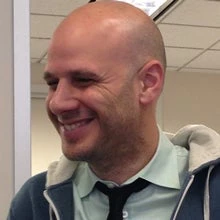Coming back from our blog vacation, I had a new post ready to go. But then, I woke up and saw the announcement that Kaushik Basu was appointed the Chief Economist of the World Bank and our new Vice President. Suddenly, there was no contest between my planned post and this one – a joyous welcome to Kaushik.
I first met Kaushik Basu as a graduate student when he came to Cornell as a Professor of Economics in 1994. His reputation as a great teacher preceded him, with reports that wherever he had taught before, he was easily one of the most popular professors. It soon became clear that this reputation was not at all exaggerated – he is such a well-rounded scholar and has such an approachable personality that it was impossible to not enjoy his lectures. By the time Kaushik arrived at Cornell, I had already done a summer internship at the World Bank (working on a poverty database for India) but he was probably one of the few people who inspired me to pursue development economics more seriously. Oddly, his first work I read was a book called “Of people, of places: Sketches from an Economist’s Notebook,” a book that compiled his writings (newspaper columns and the like) – not many of them about economics, if my memory is serving me well. (I have a hard copy at home but cannot find it on Amazon.com).
If you look at Kaushik’s CV, it is not the length that is most impressive, but it is the breadth, the diversity. To most of us, his most famous and influential work is “The Economics of Child Labor” with Van Pham in the AER in 1998, cited more than a thousand times. But, look at the body of work closely, and you will find papers on the economics and law of sexual harassment in the workplace, on intra-household bargaining power, on measuring literacy, on corruption, on international debt crises, papers in Journal of Economic Theory, many books, the bewildering list just keeps going… One of my favorites is his paper in Economics Letters, titled: “Why are so many goods priced to end in nine? And why this practice hurts the producers.” Like all great economists, his papers – written with crystal clarity – make you say to yourself: “Why didn’t I think of that?” Some great ideas can look so simple once we’ve been presented with them, but only a small minority has the ability and the depth and breadth of knowledge to produce them in the first place…
Kaushik will be arriving at the World Bank after a three-year stint as India's chief economic advisor. But, all of the professional accolades may be dwarfed by what anyone who knows Kaushik will likely tell you: he is one of the nicest, kindest people you will ever meet. People announcing his arrival at the World Bank went out of their way to say the same thing. The World Bank is lucky to have him.


Join the Conversation